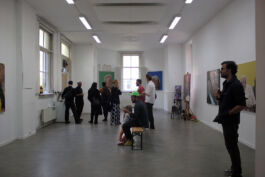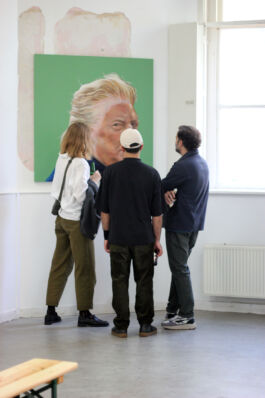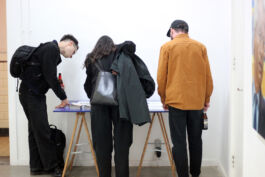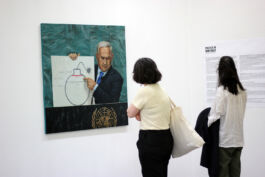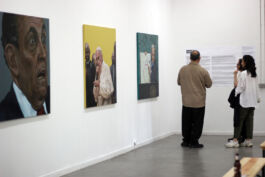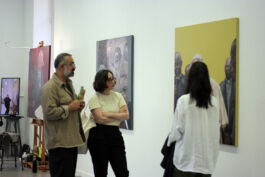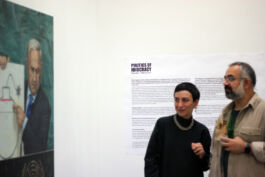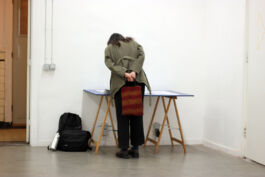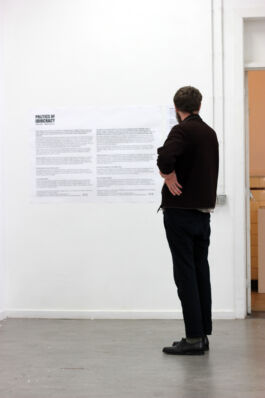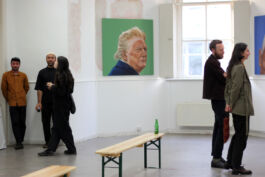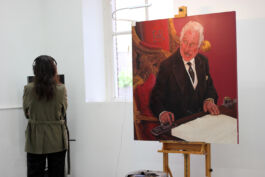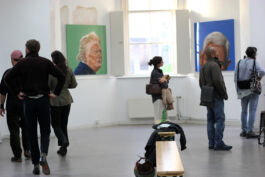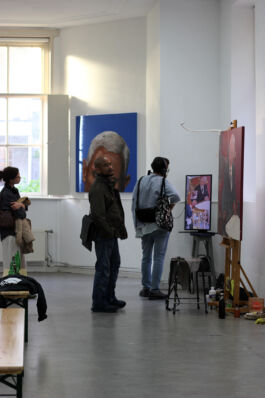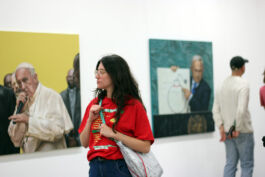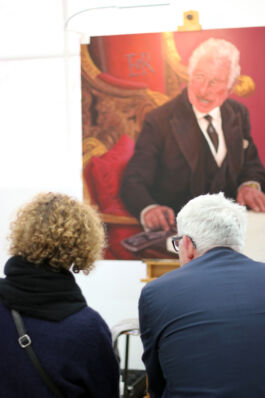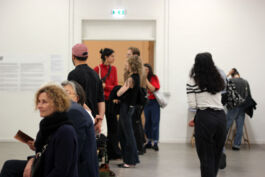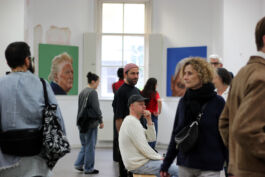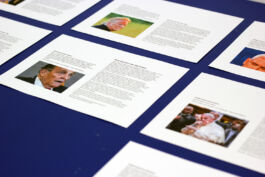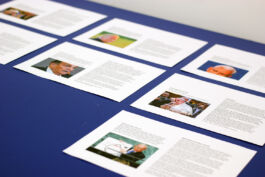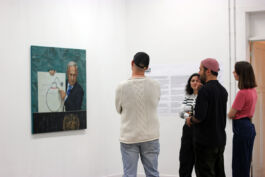Politics of Idiocracy
What happens when history is recorded not in textbooks but in memes? Politics of Idiocracy tries to transform iconic political bloopers into blooper realism* paintings, questioning how media, digital culture, the absurdity of politics, and collective memory shape today’s leadership.
Politics of Idiocracy archives journalistic photographs of different politicians and public figures around the world that are ruled as idiotic moments by the consensus of the internet. The archive investigates meme culture. It explores how a photograph and the subjectivity of a person transform into a meme, and how the internet decides which image and which political figure is deemed “memeable”. The long-term project captures these idiotic moments. The project explores how the end-users utilize and normalize comedy and ridicule as coping mechanisms in the face of powerlessness while confronting the results of the decisions made for them by their representatives.
These memes have one thing in common: an idiotic moment captured by a camera. The memes reflect a moment when these people (constantly monitored by the press) finally break the surface and reveal the idiot within. Politics of Idiocracy seeks to mirror our human fallibility and fragility, especially for people in positions of power.
*Blooper realism: Crafted images that honor moments of public failure, awkwardness, or absurdity. Where traditional realism was often reserved for depicting majesty, heroism, or historical triumph, Blooper Realism elevates the accidental, the memeable, and the cringeworthy. Why should only glory be treated with reverence? In a world where power is often constructed through image, these works freeze the instant when that image slips, revealing something deeply human.
Elements of the project:
- A growing collection of 120 x 120 cm paintings with acrylic and oil paint on wooden panels.
- An ongoing conversation with audiences, visitors of the exhibition(s), and experts discussing different topics related to the project. This will manifest as a podcast and a publication, and will be announced here.
- An archive of journalistic photographs that went viral after a blooper moment in the careers of politicians and world leaders. The archive entries provide background information on each meme, and how they went viral. The archive acts as the backbone of the project. The archive can be found here @politicsofidiocracy
Human vulnerability:
Political leaders are often cast as symbols of authority, stability, and vision, figures who stand apart from the rest of us, elevated both physically and narratively. Yet their moments of vulnerability, clumsiness, or outright foolishness reveal something profoundly human: the fallibility that unites rather than separates us. When such moments circulate as memes, they dismantle the carefully constructed myth of leadership and replace it with a mirror; one in which we glimpse not only their idiocracy, but our own. The spectacle of a leader’s misstep becomes a collective ritual of recognition, where we laugh at them and, in a quieter way, at the human capacity for error that we all share. In these moments, the distance between ruler and ruled collapses, and the theatre of power is briefly exposed for what it is: a fragile, improvised performance in which no one is entirely in control.
The idiot artist and the finishing touch:
Each painting is finalized with a finishing element. These elements are added by me to complete the idiotic scene. The materials are sourced either from my body or my environment. By this addition, I am bound to the image, and I claim my place in the ideocracy which I try to depict. My idiocracy merged with my subject.
Project background:
This project is a direct continuation of my long-term artistic research into the rethinking of representative systems. In my ongoing project Open Source Governance (since 2015), I explore alternative models for collective decision-making, inclusive consent, and participatory structures that challenge the errors in our representative systems. Politics of Idiocracy extends this inquiry from the structural to the symbolic, examining the visual culture of leadership itself. By engaging with the ways in which political figures are represented, both in state portraiture and in viral memes, I investigate how authority is performed, dismantled, and reimagined. In both projects, the core remains the same: to disrupt dominant narratives of representation and to open space for new forms of public agency and cultural memory.
Independent artist representation:
Part of this focus on representation for me has been to challenge the idea of representation for the visual artists. Through independent representation and working with artist-run spaces, I am trying to push the limits of the art scene and the market apparatus. That is why this project has remained completely independent.
To achieve this goal, I successfully carried out a crowdfunding campaign on Voordekunst.nl platform. The campaign page can be visited here.
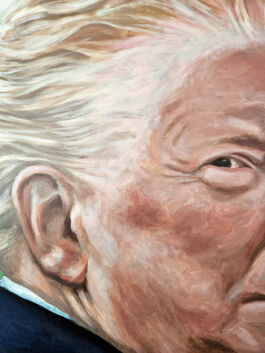
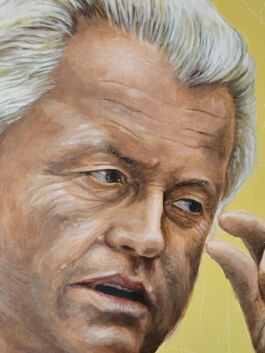
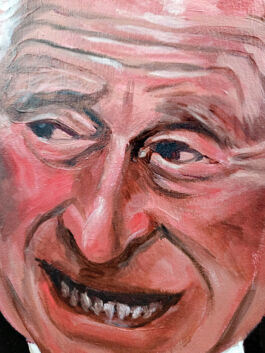
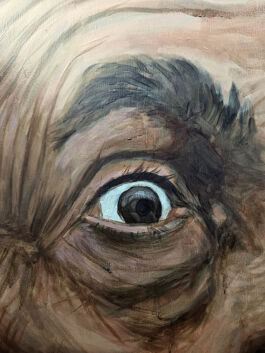
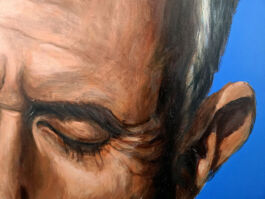
Exhibition at Het Wilde Weten, May & June 2025
The exhibition was hosted at Het Wilde Weten, an artist-run space known for fostering critical and experimental practices, this six-week residency (1-30 May) and exhibition (30 May – 15 June).
For more information about this exhibition and its events, please see the press release below:
Press Release - EN
Press Release - NL
Article and interview at versbeton.nl by Emma Ruiter
Photos by Nasim Razavian >
